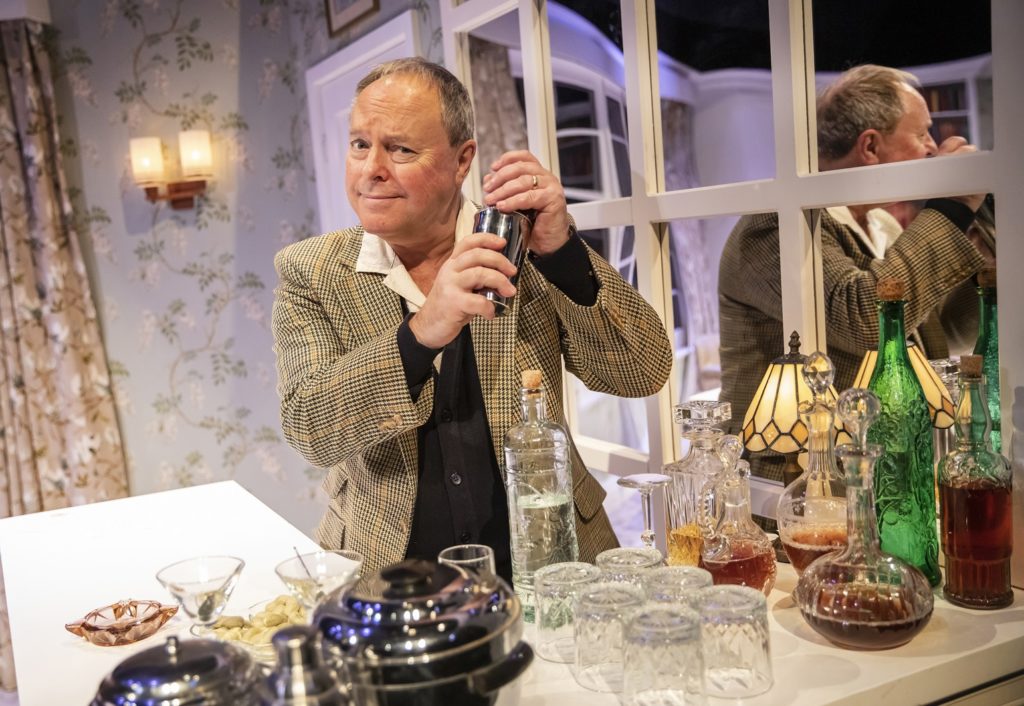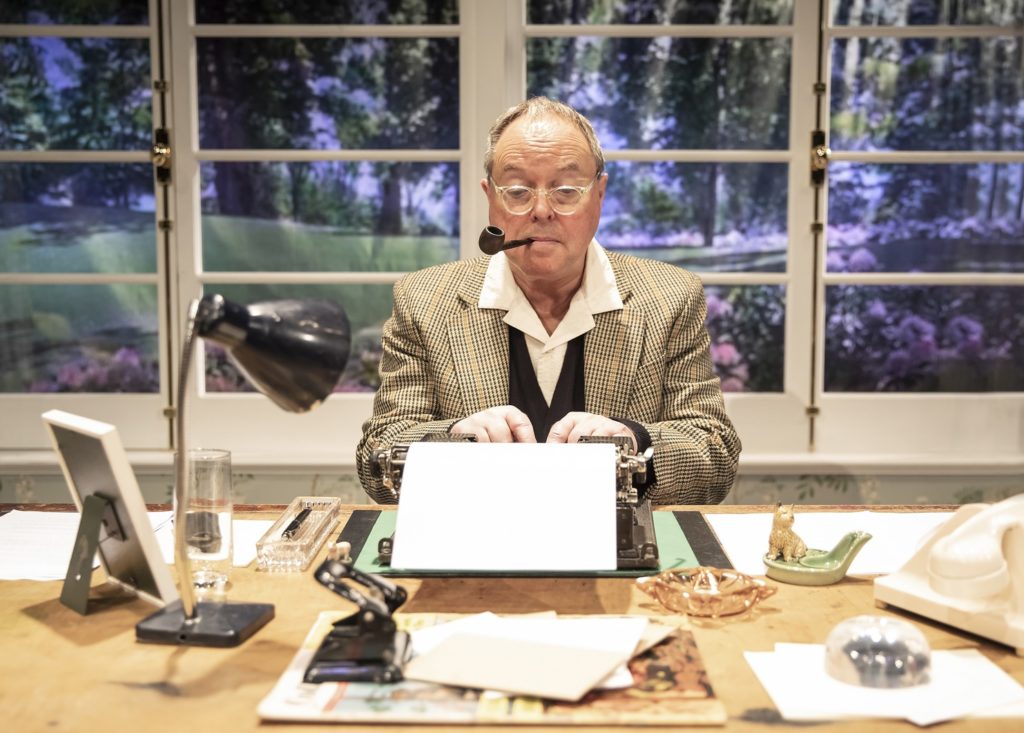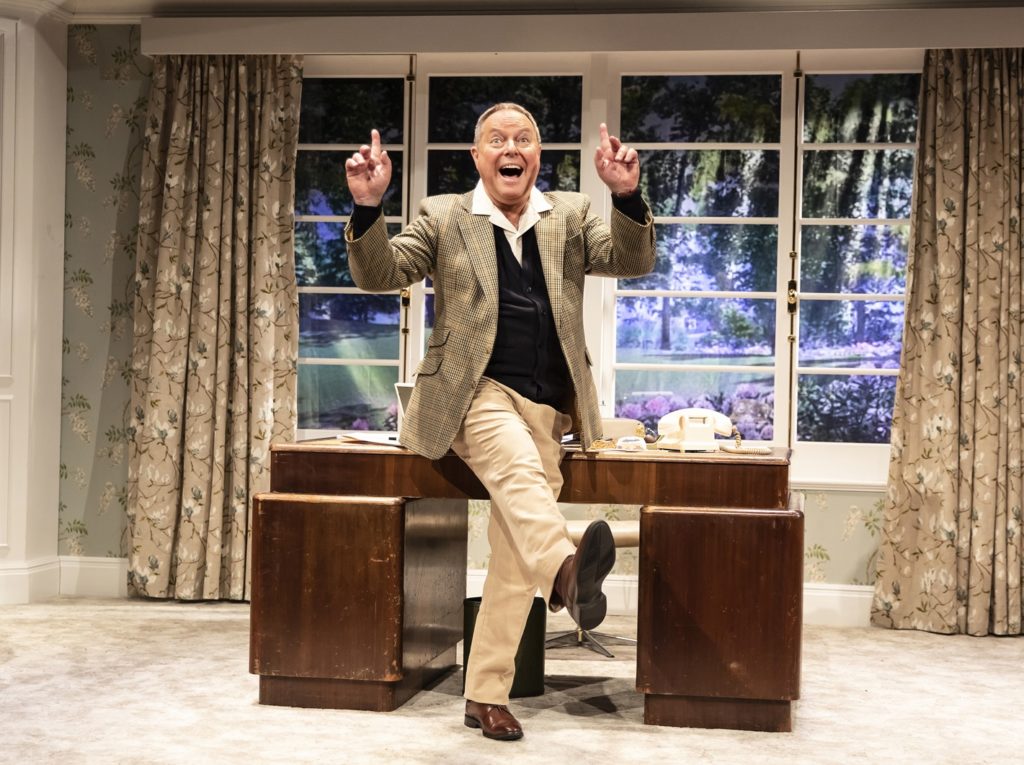
Cahoots Theatre Company presents Robert Daws in Wodehouse In Wonderland, York Theatre Royal
WE know Jeeves And Wooster, Gussie Fink-Nottle and Blandings Castle, but how well do we know their creator, the comic novelist Pelham Grenville Wodehouse? Not as well, on the evidence of William Humble’s fascinating, funny yet forthright play.
Plum, as he was known in a conflation of his first name’s two syllables, is found in 1950s’ exile, at his typewriter as ever, in his New York State home on Long Island, the flowers in full bloom beyond his study window.
He has never returned to England since the end of the war and, to his sadness, will never do so after his besmirching as a “traitor” for his Berlin broadcasts when interred in 1941. He, along with fellow vilified exile Charlie Chaplin, would be knighted in the 1975 New Year’s Honours List at the age of 93, dying a month later.
As the Guardian reported, both humorists were “unexpectedly and very bemusedly involved in unpleasant political controversy at the height of their fame”.

Humble’s play goes into forensic detail in Act Two of what Wodehouse called his “great shaming”, but this is a beautifully balanced play with many, many ups, in the manner of those exquisitely written novels so full of English character, counterbalanced by stories of his “Empire orphan” childhood, his daughter Leonora (“Snorkles”), and those bitter attacks by the wartime media.
Played by the debonair Robert Daws, in his Plum job as a Wodehouse devotee from his RADA days, later cast as Tubby Glossop in four series of Fry and Laurie’s Jeeves & Wooster, Plum is working on his latest jaunty Jeeves instalment as Humble’s play opens.
Humble will track Wodehouse’s daily routine of writing, taking breakfast to his wife Ethel, walking the Pekingese dogs Wonder and Squeaky, lunch, more writing, savouring cocktails and enjoying American soap operas (better than their British counterparts, reckons Plum).
His day’s progress, the tip-tap rhythms of the typewriter, will be interrupted by his wife, his daughter, the dogs’ barking and now a would-be biographer, who appears to have had a humour bypass.
His meetings and phonecalls, however, trigger Plum into discussing those light-hearted radio broadcasts that met with the opprobrium of wartime Minister of Information Duff Cooper despite being devoid of both propaganda and politics. Only Evelyn Waugh, fellow observer of English ways, caught Plum’s tone as it was intended, seeking to be be funny as comedians are wont to do.

Interwoven into the routines of a man at happiest when left alone to write, are Wodehouse’s stories of first “meeting” the sanguine Jeeves and his younger days as a lyricist working with Guy Bolton, Ivor Novello, Jerome Kern et al, leading to Daws showing off his singing chops with jovial aplomb on several occasions.
Featuring too are Plum’s reflections on writing his books “like musical comedies without music”; the English characteristic of needing to knock down those who find success, and the consequences of seeing his overseas parents only twice from the age of two in 15 years, his time divided between a contented education at Dulwich School and in the care of his aunts, 15 of them no less, hence their profusion in his novels, where they are subject to his mischievous streak.
Under the immaculate direction of Robin (Woman In Black) Herford, Daws’s performance captures both light and dark, with an ear for accents, a song in his heart, a mastery of emotion in a devastating revelation in Act Two, and an omnipresent love of Wodehouse and his literary wonderland. Praise too for Lee Newby’s set and costume design, evoking both the Fifties’ American setting and its English occupant and the earlier times of which Wodehouse wrote.
For all his vilification in the war years and its knock-on effect, Humble’s Wodehouse bears no bitterness, believing that life will always be better for humour. As Daws steps forward at the finale, Plum ponders, wouldn’t it be nice if we could just be nice to each other, like Lord Emsworth feeding Empress, his beloved black Berkshire sow. He has a point.
Take a PG tip: on such a wet day, look on the bright side by heading indoors to be enlightened and enchanted alike by Wodehouse, Humble and Daws, a terrific triumvirate in Cahoots’ eloquent one-man drama.
